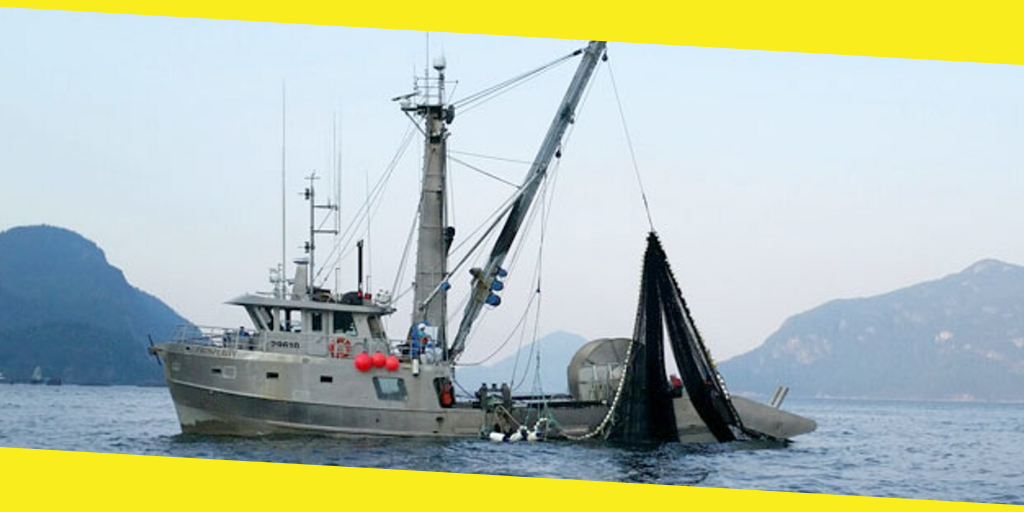The World’s Most Dangerous Jobs
This post was last updated on November 28th, 2024

For the majority of us, we have cosy 9–5 office jobs, where the primary occupational hazards and dangers lie in catching flu off a co-worker, getting a papercut, or spilling hot coffee all over your desk and work. If you think your job is stressful, have you ever considered that earning a living may cost some workers their lives? Workplace fatalities and injuries remain a real risk in some industries — the International Labour Office (ILO) estimates that there are around 2.3 million workplace fatalities and 340 million injuries every year — that’s 6,000 deaths every day.
Here, we take a look at the world’s most dangerous jobs in the UK.
1. Commercial fishing
As a pastime or sport, fishing can be a fun and calming activity. However commercial fishing, according to Health and Safety Executive (HSE), is one of the UK’s most dangerous jobs. Fishermen are six times more likely to die than workers in other sectors — in 2018, the industry suffered 62 fatalities per 100,000, with workers falling overboard and drowning.
Statistics were reported after a spate of accidents that took the lives of fishermen around the North and North East of England, with calls for a change in culture. According to reports, there isn’t enough health and safety and risk assessment to prevent injury and death, with many deaths being preventable if workers wore life jackets.
ILO 88 legislation came into effect in 2019 to improve safety and wellbeing for those working on fishing vessels — regulations include compulsory personal flotation devices to be worn at al times, high quality cameras on board, and fixed-wing aircraft.
David Fenner, Head of Fishing Safety at the Maritime and Coastguard Agency, said: “Fishing is still the most dangerous profession in the UK today and, whilst we are seeing improvements in safety, tragically there were seven lives lost in the industry last year, all of which could have been prevented.”
2. Waste and recycling
Probably one of the more surprising industries to be included in this list, particularly second, is the waste and recycling industry. Around 6,000 workers suffer from ill-health from the workplace, with 7 deaths last year.
The causes of fatalities were contact with moving machinery at 30%, being struck by a moving vehicle at 28%, and being struck by a moving or falling object at 16%. As the majority of accidents occur during collecting waste and when vehicles are moving, there is risk management that can be carried out such as eliminating reversing where possible and timing collections to avoid busy periods where pedestrians will be present.
3. Construction workers
According to the HSE, construction workers are in the third most dangerous industry in the UK, with 30 workers passing away in 2019. Around 79,000 workers suffered from work-related ill health in 2019, with 62% being musculoskeletal disorders, and 21% stress, depression, or anxiety.
The main cause of deaths in the industry are falling from a height at 49%, being trapped by something collapsing or overturning at 14%, being struck by a moving vehicle at 11%, being struck by a moving or falling object at 10%, and contact with electricity at 5%.
4. Oil or gas rigger
Working in the oil and gas industry comes with innate dangers — the scope of work carried out by workers is dangerous in nature, particularly offshore. Upstream oil and gas has one of the highest severe injury rates in the world, with potential for many things to go wrong including explosions, chemical leaks, machinery malfunctions, fires, and falling equipment.
Common injuries in the oil and gas industry include injury from heavy machinery operation including trauma or crush injuries, dismemberment, fractures, severe burns, explosions, spinal cord injury, paralysis, and chemical exposure. In 2018, there were no fatal injuries, but there were 66 sustained injuries per 100,000. 235 dangerous incidents and 112 hydrocarbon releases were reported, which can result in a variety of health issues and complications.
Health and safety are the most crucial considerations when working in the oil and gas industry, due to the nature of the work, it’s important that workers receive the best quality training that is realistic and constantly up to date, including comprehensive training with virtual reality technology.
5. Deep sea divers
There’s a reason why deep-sea divers are paid so high — an isolating and dangerous career that requires divers to be locked up in decompression chambers for 28 days the size of a caravan with several other people. In 2018, 19 scuba divers died in the UK, the highest death toll for 14 years. Not only extremely claustrophobic, you can suffer from a range of medical conditions and painful deaths apart from the obvious drowning and equipment malfunction. It’s important that saturation divers follow careful regulations like ensuring your diving equipment and piston rings are airtight and ascending at a slow enough pace to avoid injury.
Firstly, barotrauma occurs when tissue near pockets of air in your body will be damaged, including sinuses, dental roots, lungs, and ears, and can rupture your ear drums or lungs. Secondly, decompression sickness is when you ascend too quickly and nitrogen bubbles form in your body, causing damage to your nerves and tissue, which could end in fatality or paralysis. Thirdly, nitrogen narcosis is a result of nitrogen building up in your brain and causes you to be delirious, as if you were drunk — examples include believing you can breathe underwater and removing your regulator or being unable to read your gauge and instruments.
So, there we have some of the UK’s most dangerous jobs. It’s important to follow health and safety rules — they’re there for a reason!
Sources
- https://www.pressandjournal.co.uk/fp/news/aberdeen/1520325/new-figures-show-fishermen-six-times-more-likely-to-die-at-work/
- https://www.hse.gov.uk/statistics/industry/waste-recycling.pdf
- https://www.hse.gov.uk/statistics/industry/construction.pdf
- https://www.slackdavis.com/blog/common-oil-rig-injuries/
- https://www.msdmanuals.com/en-gb/professional/injuries-poisoning/poisoning/hydrocarbon-poisoning
- https://divernet.com/2018/12/15/uk-diver-death-toll-rose-in-2018/
Recommended For You
A Few Myths and Truths About the Online Casino
Most Inside
Most Inside offers high-quality recommendations and valuable updates to enhance all aspects of your life, providing premium guidance and enriching experiences.




